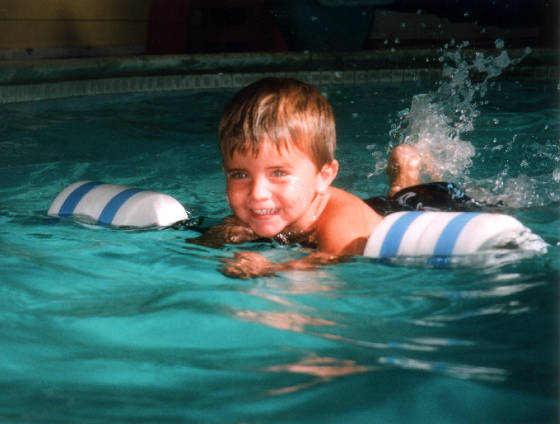|
|
Home2025 HIGH DESERT SWIM PROGRAM REGISTRATIONSUMMER ACCELERATED PROGRAM REVIEWSSilver Lakes and HIGH DESERT Private LessonsAccelerated Summer Swim Registration 2018Last Year's Class OutlineADULT SWIM LESSON REGISTRATIONCLASSESCONTACT INFOPAGE NOT CURRENTDROWNING STATISTICSOur Philosophy and What to ExpectActivitiesMeet Miss WendyOur FacilityPhoto GalleryVideosParent's Pics and TESTIMONIALSSign up for Summer RefresherAbout Our Summer Refresher Camp
|
An important factor to consider when choosing swimming lessons is the type of learning style and overall
philosophy of the instructor.
My mission is to provide an opportunity for your child to learn the important safety skills necessary for being in or around the water. My goal is to teach him what he CAN and CANNOT do in order to be safe. In the process, I want him to develop a healthy respect for the water and his abilities, and to develop a genuine love of being in the water that will last a lifetime. This will only come from a growing sense of independence and trust in himself, and the realization that HE has the knowledge to handle himself in any given situation.
My methods are slightly backwards from the usual way of teaching swimming.
Many programs spend a lot of time getting your child to "like" the water, then
teach him to swim. In the interim, you end up with a child who "loves the water", but has no idea of how to survive
in an emergency.This is the child who will step beyond his abilities and find himself in serious trouble. A child who loves
water but cannot swim is a drowning accident waiting to happen. For this reason, my goal from the very beginnung is to teach
him to swim. He will learn to love the water when he realizes that he is safe in it in any situation, whether
he can touch the bottom or not.
It is necessary for me to form a trusting relationship with your child, and to bond with
him as his instructor. When we begin, I will be using songs and games to introduce new skills. As time goes on, simple verbal
cues will be all that is needed. Your child will learn to listen to and follow instructions when in and around the water,
and to enter the water only when given permission to do so. I will also be laying the groundwork for proper breathing skills,
body position, etc. I do not teach by the smorgasbord method. That is, each child gets to choose what he or she is willing
to do at any given time. All children perform each task I assign them, to the best of their ability. I never
ask them to do anything which they are not yet capable of doing or for which they have not been thoroughly prepared. My job
is to take your child past his fears and apprehensions and prove to him that he actually can perform all
the skills I ask of him, even when he is convinced that he can't. Completing tasks which he may have thought
to be "too hard" builds confidence and self esteem which often carries over into other aspects of his life such
as school and social situations. I try to impart not just swimming skills, but LIFE skills to your child. WHAT to EXPECT:
Apprehension : Your child will not know me yet. I try to spend some time with your child outside of the pool before actually getting into the water. If your child is very young, he may actually try to cling to you. This is where you will have to be strong, and remember why you are enrolling him in swimming lessons. Drowning is the number one cause of death in children under the age of four. Obviously, these tragic occurrences do not always happen when parents are being negligent. It happens in the blink of an eye, when you least expect it. Swimming is a life-saving skill that needs to be taught early. We play with toys and do very non-threatening things at the beginning, that have not much to do with swimming. This is all designed to get your child used to me, and comfortable with me. I start children under two years of age with their parents in the water. By the time they turned three, they will be with me. I will ask you to stay basically out of sight of your child during the lesson. You are more than welcome to watch from a distance, but I ask that you not speak to your children or interrupt the lesson in any way. Your child will need to learn to follow directions from me, to bond with me, and to trust me as his instructor. The closer you are, the more difficult it is for him to separate. Please do not interpret this initial behavior as fear of the water. They are simply responding to the fact that they are being asked to do something that they have never done before, with a person that they don't really know. It is perfectly natural for them to be apprehensive. Tears: There may well be some tears as he starts his first few lessons. Children often display their displeasure by crying.
Whether it is because they can't have the toy at the store, can't have the dessert before dinner, or are in an apprehensive
situation that they are not familiar with. This will pass! Once children get to know me, they love and respect me. Their knowledge
and confidence in the water grows along with that. Please don't give up at this point. Your child may be testing me, and your
resolve. This is an issue you do not want give in to. Be strong for your child, and you will be rewarded with a child who
loves the water, is confident, and able to handle himself in any situation that may arise. |
